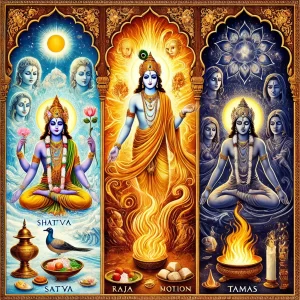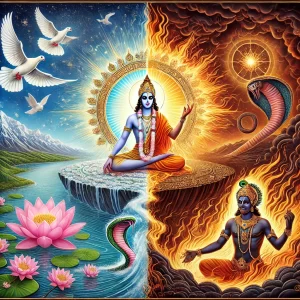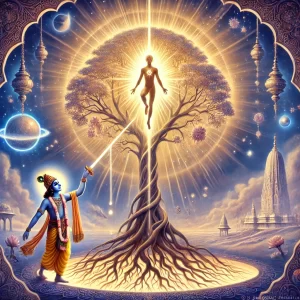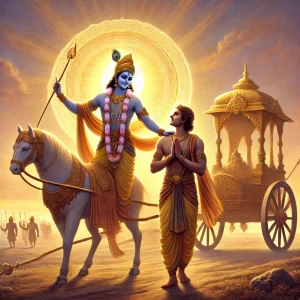
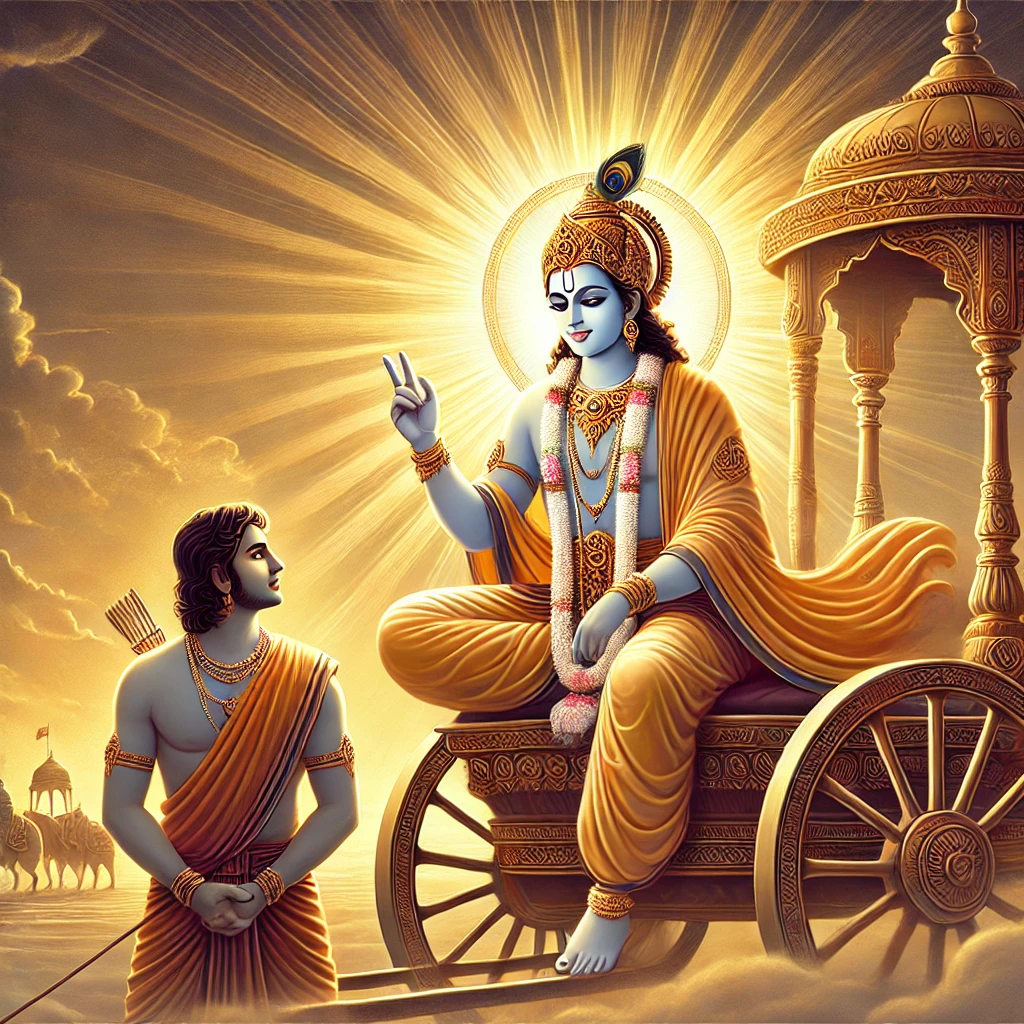
— Jnana Karma Sanyasa Yoga: The Yoga of Knowledge and Renunciation of Action
Chapter 4 of the Bhagavad Gita, called Jnana Karma Sanyasa Yoga, blends wisdom (Jnana) with selfless action (Karma Yoga). Krishna deepens Arjuna’s understanding of the divine origins of knowledge and the importance of acting with clarity, purpose, and surrender. It reminds us that true freedom doesn’t lie in giving up action, but in giving up ego and attachment in action.
This chapter is rich in insight for those seeking both inner peace and outer effectiveness. Let’s explore some of its most powerful lessons for daily life.
1. Wisdom Is Timeless—and Meant to Be Shared
Krishna begins by telling Arjuna that the knowledge of the Gita is ancient, passed down through generations of sages and kings, but lost over time. He is now reviving it for Arjuna—and for the world.
Verse 1–3: “This eternal yoga was passed on… but over time, the tradition was broken.”
Lesson: Real wisdom never gets outdated. Truths about integrity, purpose, and spiritual growth remain relevant through changing times. We must not only rediscover ancient wisdom but also share it to uplift others.
2. The Divine Appears in Every Age to Restore Balance
Krishna famously declares that whenever there is a decline in righteousness and a rise in injustice, he manifests to restore dharma (righteousness).
Verse 7–8: “Whenever there is a decline in dharma, I incarnate to protect the good, destroy evil, and restore balance.”
Lesson: This verse reminds us that light always returns—in times of personal or societal darkness, transformation is always possible. And sometimes, the divine help we seek appears not as a miracle, but through the people, wisdom, or strength we’re given to carry forward.
3. Renunciation Doesn’t Mean Giving Up Work—It Means Giving Up Ego
Krishna explains that renunciation of action (sanyasa) doesn’t mean withdrawing from life. It means doing your duties without attachment to results and without identifying with the “doer” ego.
Verse 20: “Abandoning attachment to the results of actions, always content and independent, he does nothing though engaged in action.”
Lesson: You can be active and busy—and still be peaceful inside. It’s not the task, but your attitude that determines whether you’re free or burdened. Work without ego = peace.
4. True Knowledge Burns Away Ignorance Like Fire
Krishna uses a striking metaphor: just as fire burns fuel to ashes, knowledge burns away ignorance and illusion. When you understand the deeper truths of life, unnecessary worries and identities fall away.
Verse 37: “As fire burns wood to ashes, so does the fire of knowledge burn all actions to ashes.”
Lesson: The more clearly you understand yourself, your purpose, and your values, the less you are disturbed by life’s noise. Invest in self-awareness—it’s your inner compass.
5. Faith, Discipline, and Curiosity Are Keys to Growth
Krishna tells Arjuna to seek out knowledge from the wise with humility, sincerity, and a desire to learn. A student must be open-hearted, consistent, and curious.
Verse 34: “Learn from the wise by respectful inquiry and service. The wise who have seen the truth will teach you.”
Lesson: Whether it’s spiritual learning or personal development, progress comes to those who combine humility with effort. Don’t stop learning. Ask questions. Grow slowly and consistently.
Final Thoughts
Chapter 4 of the Bhagavad Gita bridges action with insight. It teaches us that doing your duties with awareness and surrender is the highest form of yoga. It doesn’t matter if you’re in a quiet temple or a noisy office—if your heart is centered, your work becomes worship.
It’s not about doing less—it’s about doing it differently. With wisdom. With purpose. With surrender.

